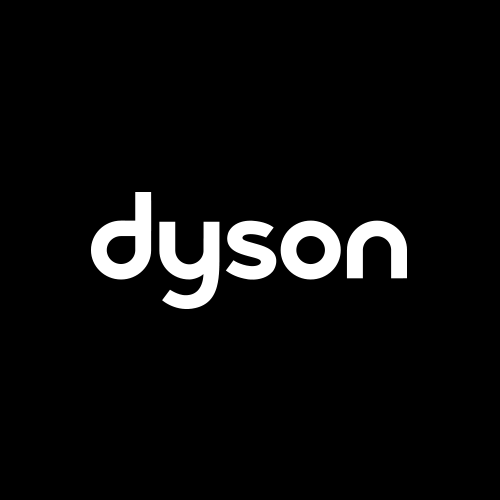Dyson successful forum non conveniens challenge in Malaysian outsourcing claim. A sad illustration of the bar to #bizhumanrights claims in England and Wales post-Brexit.
In Limbu & Ors v Dyson Technology Ltd & Ors [2023] EWHC 2592 (KB) a jurisdictional challenge on forum non conveniens grounds in allegations of forced labour at Dyson’s Malaysian Supplier, was successful. The judgment shows the impact of neither Brussels Ia (with a forum non conveniens ultra light regime) or the Lugano Convention (no forum non conveniens at all) applying.
Original Source: GAVC LAW – by Geet Van Calster – 24th October 2023.
The case is said [18] to raise a number of novel questions: whether the unjust benefit in a claim for unjust enrichment has to flow directly from the claimant to the defendant; and whether a party can be liable in negligence for the treatment by a third party — a supplier — of that third party’s employees. I do not think nota bene that the latter is correct: IMHO undoubtedly it can (for similarish considerations, albeit at strike-out level, see the Court of Appeal in Begum v Maran). The question is under what conditions.
[16] the judgment lists the concessions made by the defendants:
(i) D1 and D2 will submit to the jurisdiction of the Malaysian courts if they are sued there;
(ii) The Dyson Defendants will not seek security for costs or an adverse costs order against the Claimants if and to the extent such costs would not be recoverable under the Qualified One Way Cost Shifting regime in England;
(iii) The Dyson Defendants will pay the reasonable costs necessary to enable the Claimants to give evidence in Malaysian proceedings including (if necessary) affidavit affirmation fees and other costs necessary for the Claimants to give remote evidence including travel and accommodation costs, costs associated with the provision/set-up of suitable videoconferencing technology and other costs associated with the logistics of giving evidence remotely;
(iv) The Dyson Defendants will not oppose an application by the Claimants for remote attendance at a hearing/the trial in Malaysian proceedings;
(v) The Dyson Defendants will pay for the Claimants’ share of the following disbursements to the extent reasonably incurred and necessary: (a) Court interpretation fees, (b) Transcription fees, and (c) Joint expert evidence; and
(vi) The Dyson Defendants will not seek to challenge the lawfulness of any success fee arrangement entered into between the Claimants and their Malaysian lawyers.
A further undertaking was given in the course of the hearing before me: that the Dyson Defendants would not oppose an application for a split trial.
Sheldon DJ, with reference to Spiliada, sets out the jurisdictional test as follows [28-29]
With respect to “service in” cases [defendants domiciled in England, served there ‘of right’, GAVC], the burden of proof rests on the defendant to show that England is not the natural or appropriate forum and that there is another available forum which is clearly and distinctly more appropriate: Stage 1. If so, then the burden shifts to the claimant to show that there are special circumstances such that justice requires the trial to take place in England: Stage 2.
With respect to “service out” cases [defendant in respect of whom permission to serve abroad has been obtained, GAVC], the burden of proof is on the claimant at Stage 1 to show that England is the appropriate forum for the trial of the action, and that it is “the proper place in which to bring the claim” (CPR rule 6.37(3)). According to Lord Goff in Spiliada … the claimant must show that this is “clearly so”. If the claimant fails to establish that England is the proper forum, then Stage 2 will apply.
[30] the judge refers to Briggs J in Vedanta emphasising a preference for a single forum, so as not to run the risk of irreconcilable judgments, should there be bifurcation. [37] He refers to Lord Briggs’ reference [87] in Vedanta that when the E&W-domiciled anchor defendant)s) have agreed to submit to a foreign jurisdiction, but the claimant has made a deliberate choice to sue in this forum and has thereby engendered the risk of irreconcilable judgments, it “would offend the common sense of all reasonable observers to think that the proper place for this litigation to be conducted was England”.
That element of Lord Briggs’ speech was subject to a requirement that substantial justice can be obtained abroad, and I pointed out here that I found that a massive get out off jail free card.
The judge in current case [43ff] emphasises the caution that should be applied when considering whether “substantial justice” can be obtained in the foreign jurisdiction.
First, it has been observed that there have been “judicial warnings of undoubted authority that the English court should not in this context conclude, other than in exceptional cases, that the absence of a means of funding litigation in the foreign jurisdiction, where such means are available in England, will lead to a real risk of the non-availability of substantial justice”: see Lord Briggs JSC in Vedanta at §93 referring to Connelly v RTZ Corpn plc (No 2) [1998] AC 854 (“Connelly“), 873 per Lord Goff, and Lubbe and Others v Cape Plc [2000] 1 WLR 1545 (“Lubbe“), 1555 per Lord Bingham.
Second, as Lord Goff noted in Connelly at p874D, “seeking to take advantage of financial assistance available here to obtain a Rolls Royce presentation of his case, as opposed to a more rudimentary presentation in the appropriate forum” would not be sufficient to justify such a refusal.
Third, and more generally, Lord Briggs warned in Vedanta at §11 that the “conclusion that a foreign jurisdiction would not provide substantial justice risks offending international comity. Such a finding requires cogent evidence, which may properly be subjected to anxious scrutiny”.
Authorities discussed were then Connelly, Lubbe, Pike, Unilever, and of course Vedanta. [52] Claimants argue that from an access to justice perspective, where the English Court was seized of jurisdiction, and knows that a fair trial is possible here, it should not lightly relinquish that jurisdiction – I think they are right. Parties’ respective arguments are summarised [54] ff and the judge held as follows [83] ff.
On “Spiliada Stage 1. The key factors are said to be: (Dyson)
(i) Neither England nor Malaysia are practically convenient for all of the parties and witnesses. This factor in essence is said to be neutral.
(ii) There is no completely common language for each of the witnesses, and so this factor is neutral.
(iii) Lex causae will be Malaysian, and this it is [97] said “is a factor which clearly favours hearing the case in Malaysia.” This section I find does not properly represent the way in which English courts can and do apply foreign law even when that law may not be clear to the foreign country itself. (And by the way was it common ground that the unjust enrichment claim would be subject to Malaysian law?)
(iv) The issues in this case took place in both England and Malaysia, [102] “however, the place where the harm occurred was in Malaysia (even if there are ongoing injuries for the Claimants who live outside of Malaysia), and the underlying alleged mistreatment took place in Malaysia. In my judgment, the centre of gravity of this case is plainly Malaysia, and this is a strong factor pointing towards Malaysia as being the proper forum.”
I disagree. As the judge said himself, this claim raises new issues on unjust enrichment in the supply chain and the English outsourcing corporation’s liability for mistreatment in the supply chain. The main focus of the trial will in reality be concerned with the E&W defendants and the Dyson Defendants’ policies, activities and arguments about their liability, as claimant’s counsel argues [104].
(v) The documents relevant to the case are held in both England and Malaysia. Wherever a trial is held, it seems most likely that the relevant documents will be obtainable. This factor is said slightly to favour Malaysia.
(vi) There is a real risk of a multiplicity of proceedings, and of irreconcilable judgments, wherever this claim is heard. However [121] particularly in light of related defamation proceedings, this element is said to favour E&W.
In conclusion on Spiliada Stage 1, [122]:
England is not the natural or appropriate forum and that Malaysia is another available forum which is clearly and distinctly more appropriate. The centre of gravity in this case is Malaysia: that is where the primary underlying treatment about which the Claimants complain took place, and is therefore the forum with “the most real and substantial connection” per Lord Goff in Spiliada at 478A. Malaysian law is also the governing law, and there are good policy reasons for letting Malaysian judges consider the novel points of law that are being raised in this claim within the context of their jurisprudence, rather than letting an English Court second guess what they might decide. In my judgment, these factors are not “dwarfed” by countervailing factors (per Lord Mance in VTB). The risk of irreconcilable judgments resulting from the defamation proceedings is an important factor, but it does not tilt the balance in favour of the English Court being the proper forum to determine the Claimants’ claim.
On to Stage 2: are there special circumstances such that justice requires the trial to take place in England? (Dyson)
Neither the difficulties in obtaining justice for migrant workers, that the claims were complicated and needed suitably qualified advocates, the lawyers who argued labour and migrant cases did not have the expertise necessary to deal with this kind of case, and teaming up was unlikely that it was not possible to case manage out complexity, and although personal injury cases could easily be divided into liability and quantum this was not possible for a claim of unjust enrichment, where establishing the extent of enrichment was part of the question of liability. A very substantial part of the case would involve unjust enrichment, and an estimate of 6 months for the trial had been given that there would be very significant disbursements, not least on expert fees; and there would be a need for forensic accounting for the unjust enrichment claim; that the claims would involve considerable financial risk for the Claimants’ legal representatives. They would have to commit thousands of hours of work, and be at risk that they would not recover them. Among other things, there would also be translation costs, hundreds of hours for reviewing documents, setting up hearings in Bangladesh. The fact that there was one witness who had said he would do the case was not sufficient that the prospect of a small band of practitioners being willing to take the risk was reduced when considering that they would be opposed by Defendants without any effective limitation on resources, represented by one of the largest law firms in the world, and where aggressive and heavy-handed approach is likely to be taken in the defence of the proceedings that it was inappropriate to rely on the undertakings given by the Dyson Defendants. Paying for the disbursements does not touch the size of the financial risk. There was also a conflict of interest here, as the Claimants’ legal representatives would be negotiating with the Defendants’ legal representatives over the reasonableness of the costs incurred; that there was no cogent evidence that the gaps could be filled by NGOs; and that the Claimants contended that partial CFAs were unlawful; and even if they were lawful, the basic fee to be paid cannot be nominal, and the fee that would have to be paid by the Claimants would be set at a level which was unrealistic.
It was held [171] to be one of the “exceptional cases” in which “the absence of a means of funding litigation in the foreign jurisdiction, where such means are available in England, will lead to a real risk of the non-availability of substantial justice”, per Lord Briggs JSC in Vedanta at §93.
I do find the evident reliance in many of these factors on defendants’ commitments troubling, including from an Article 6 ECHR point of view; I do not think the judge is right on the applicable law being a Malaysian law issue- and that element was really the only one favouring Malaysia; and the main focus of the trial on the claim argued will, in reality, be concerned with the E&W defendants and the Dyson Defendants’ policies, activities and arguments about their liability.
Additional Reading on Dyson Forced Labour:
See also: 10th July 2023: Allegations of forced labour and dangerous conditions at Dyson Malaysian factory
See also: Reuters 31st Oct 2022: James Dyson fails in libel claim against UK’s Channel 4 News


